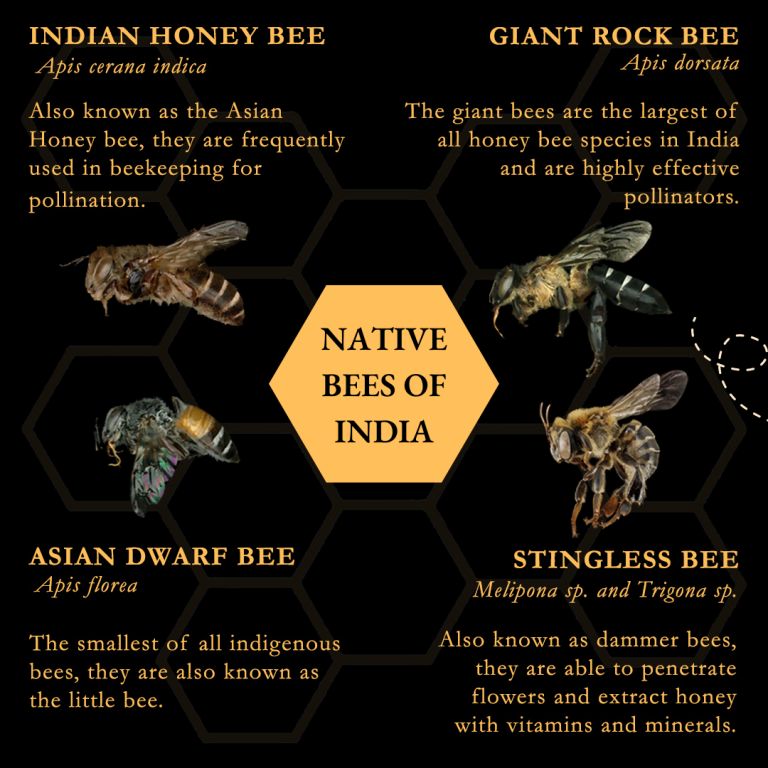Threats to Wild Bees | 17 Jan 2025
A study published in journal Science, has revealed that over 70% of wild bee species, crucial for pollination, are at risk from pesticide residues in soil.
- Key Finding of the Study: Current pesticide risk assessments mainly focus on honey bees, ignoring the impact on wild bees that nest in the soil.
- Pesticides like cyantraniliprole harm wild bees by reducing their survival and reproductive success, threatening future generations.
- Importance of Bees: Bees are vital for pollinating many food crops, contributing directly to food security. A third of the world’s food production depends on them according to the Food and Agriculture Organization (FAO).
- Honey bees, living in large colonies, use social detoxification strategies (collective behaviors to manage toxins) to buffer pesticide impacts. Wild, solitary bees lack this protection and are more vulnerable to pesticide exposure.
- Pollination: It is the process of transferring pollen from the male part of a flower to the female part, which allows the plant to reproduce.
- Pollinator Decline Impact: The decline in wild bees populations due to habitat loss, pesticides, and climate change threatens plants that rely on bees for pollination, impacting global food security, Beekeeping (or apiculture) and biodiversity.
Read more: World Bee Day

